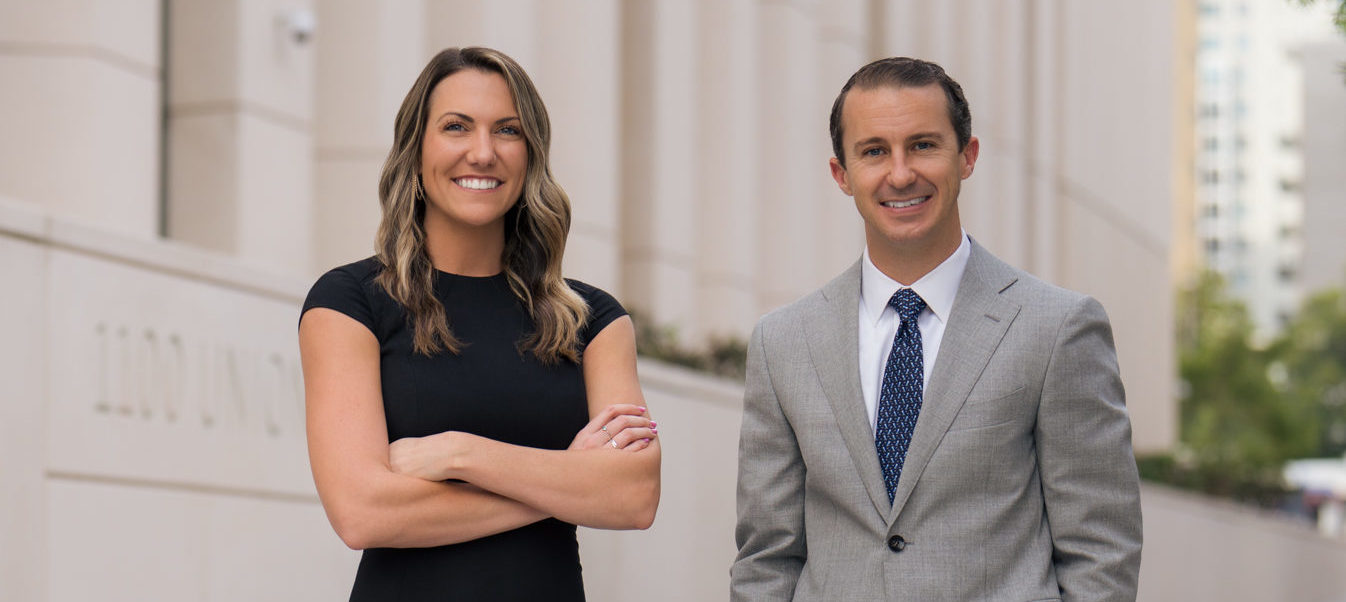Unfortunately, sexual harassment can happen anywhere, not just in the workplace. You may even experience sexual harassment by professionals you’re supposed to be able to trust, like dentists, doctors, psychotherapists, lawyers, real estate agents, landlords, or teachers.
California recognizes just how traumatic sexual harassment can be in these types of non-work relationships built on trust and respect. The law protects victims and gives them options.
Under California law, Civil Code Section 51.9, anyone who establishes a business, service, or professional relationship with you can be held liable for sexual harassment. That means you can sue for damages by filing a sexual harassment lawsuit.
Compared to employment discrimination laws like Title VII or FEHA, Section 51.9 hasn’t gotten nearly as much attention. This is bound to change since Ashley Judd sued Harvey Weinstein in 2020 for sexual harassment in a professional relationship under Section 51.9. The lawsuit claims that after Judd refused Weinstein’s sexual advances, the producer smeared her professional reputation to director Peter Jackson in 1998, costing her a role in the Lord of the Rings franchise. The lawsuit was allowed to move forward because the relationship had “an inherent power imbalance” with Weinstein “uniquely situated to exercise coercion or leverage” over Judd.
When you file a claim under Section 51.9, you can get damages or monetary compensation for the harm that you’ve suffered. That includes compensation for any physical injuries, emotional distress, economic losses, or violation of statutory or constitutional rights.
What kind of relationship do you need to have in order to sue? What counts as sexual harassment? Who can you talk to about your case?
Below you’ll find general information about what makes a Section 51.9 case for sexual harassment in California. To answer questions about your specific circumstances, call the San Diego offices of Harlan Law today at (619) 870-0802 for your FREE consultation.
What Types of Professionals Are Prohibited From Sexual Harassment Under Section 51.9?
The law protects you from sexual harassment by anyone with whom you share a business, service, or professional relationship that cannot be terminated easily.
Section 51.9 includes (but is not limited to) the following types of professionals:
- Lawyers and social workers
- Doctors, nurses, and other healthcare providers
- Psychiatrists, psychotherapists, and other mental health care providers
- Teachers or professors who sexually harass their students
- Accountants, financial advisors, and financial planners
- Bankers, loan officers, and collection service officers
- Trust officers or executors, trustees, and administrators of estates
- Building contractors and appraisers
- Real estate agents and escrow loan officers
- Landlords, building superintendents, and property managers
- Elected officials and lobbyists
- Directors, producers, and investors
Many of the professionals on this list hold positions of power and trust over their clients. The law also includes any relationship that is substantially similar to those listed above.
Finding another professional to handle deeply personal issues isn’t easy. You may work with a doctor, therapist, or lawyer for years. Disrupting such a relationship could set you back years of progress, cost you money, or leave you at an economic disadvantage.
Landlords, loan officers, and others with decision-making powers over your home or livelihood may use that leverage for sexual coercion – a form of sexual harassment. Professionals like dentists often have clients in vulnerable positions, such as under the influence of narcotics.
In 2018, the California Senate amended Section 51.9 with Bill 224 to include elected officials, lobbyists, directors, producers, and investors. This bill was drafted and passed in response to high-profile sexual harassment allegations uncovered by the #MeToo movement. While these professionals would have been covered as “substantially similar” to others on the list, SB 224 made a point to clearly include them. This better protects sexual harassment victims in California’s thriving film, tech, and creative industries.
SB 224 also expands the law to cover relationships where someone takes the role of helping you establish a business, service, or professional relationship with them or a third party. This could apply to talent and recruiting agents, for example.
Not All Professionals Are Covered Under Section 51.9
However, Section 51.9 does not cover all professional relationships. The relationship must be the type that cannot be terminated easily or without significant cost.
For example, it’s easy enough to find a new plumber to fix issues around the house or a new landscaper to mow the lawn. If you experience sexual harassment in these cases, you have the power to terminate your relationship with that professional without losing much.
Although this doesn’t address the harassment you experienced, civil law considers the power to choose with your wallet a good enough remedy. If the sexual harassment was severe, you could take your case out of civil court to file criminal charges for assault or battery.
What Is Considered Sexual Harassment Under Section 51.9?
The definition of sexual harassment under California Civil Code Section 51.9 is similar to the definition under the California Fair Employment and Housing Act (FEHA).
Sexual harassment in a business, professional, or service relationship could look like:
- Sexual solicitations or requests
- Making sexual comments or advances
- Demanding or coercing sexual compliance
- Sexual conduct that is verbal, physical, written, or visual
- Hostile conduct based on sexuality or gender
- Exposing clients to sexually explicit materials
- Sending sexually explicit messages or texts
- Threatening to publish explicit photographs of the victim
In order to count as harassment, the behavior or conduct must be:
- Unwelcome, and
- Pervasive or severe.
To be pervasive, unwanted sexual conduct must happen often. A single incident of sexual conduct may not count as harassment unless it’s severe – i.e., there’s a threat of assault.
When analyzing cases of sexual harassment by trusted professionals, California courts have determined that Section 51.9 works similar to Title VII and FEHA. These are federal and state anti-discrimination laws that apply in employment and housing. This may sound complicated, with many layers of law involved. A harassment and discrimination lawyer can help you better understand how your Section 51.9 case can move forward.
When Can You Sue Professionals for Sexual Harassment?
Under Section 51.9, you may sue for damages if you can prove that you suffered a personal injury or an economic loss or disadvantage because of the harassment.
The injuries you suffer could be emotional distress or even the violation of a legal right – for example, the right to be free of gender discrimination in housing.
When it comes to discrimination or harassment in the workplace, employees must usually take certain steps to report the behavior before escalating their claims in court. In contrast, if you have a claim for sexual harassment against a business or service professional under Section 51.9, you can file a lawsuit directly with the Superior Court of California.
In California, the common law Statute of Limitations for filing a harassment claim against a business or service professional is 2 years from the date of the incident. That means you only have 2 years after you experienced harassment to file a lawsuit in court. If you miss this deadline, you could miss your chance to recover damages forever.
What Damages Can You Get for Professional Sexual Harassment?
Sexual harassment can have serious consequences, even outside of work. Sexual harassment in a business, service, or professional setting can affect your mental and physical health. A sexual harasser could have power over your home, finances, or career. It’s unacceptable for relationships with such power imbalances to allow sexual harassment to go unchecked.
When you file a sexual harassment lawsuit under Section 51.9, you can hold your harasser responsible for the harm and injuries they’ve caused. These are called damages. In personal injury lawsuits, damages are usually calculated as monetary compensation.
The law cannot undo the sexual harassment you suffered or the effects it had on your personal life or career. However, the law can use monetary damages to help compensate you for your losses. This process tries to “make you whole” to the fullest extent possible – by putting you in the position you would be as if you never suffered the sexual harassment.
Damages are the reason the law requires you to have suffered actual losses. However, emotional distress alone can be injury enough to warrant compensation.
A Section 51.9 sexual harassment lawsuit can get you damages for:
- Any business opportunities you’ve lost
- Loss of professional reputation
- Emotional distress you’ve suffered because of the harassment
- Any costs you incurred while trying to replace a service provider
- Losses from having to terminate a relationship based on sexual harassment
- Attorney’s fees over the course of your lawsuit
In addition, a lawsuit can get you punitive damages in cases where the sexual harassment was especially severe, morally repugnant, or involved additional efforts to cover up the incident. A case like Weinstein’s where sexual harassment was rampant, with dozens of victims silenced over the course of decades, is ripe for punitive damages.
Depending on your losses, the damages you receive could be in the hundreds of thousands or millions of dollars. Without Weinstein’s influence, a contract in the Lord of the Rings franchise could have been worth millions of dollars for Ashley Judd. Punitive damages could match any compensatory damages you receive or even add millions more to your payout.
To get the best settlement or judgment for your case, do not sign a settlement agreement until you talk to a personal injury lawyer about what you’re owed.
NDAs Not Allowed for Sexual Harassment Settlements
In 2018, the California Senate also passed Bill 820, the Stand Together Against Non-Disclosure (STAND) Act, which limits the use of secret settlements to silence victims.
Under this law, settlement agreements cannot prevent the parties from disclosing factual information related to a civil action having to do with sexual harassment. This includes:
- Any sexual assault that can’t be prosecuted as a felony sex offense,
- Sexual harassment in non-employment relationships,
- Workplace sexual harassment, discrimination, or retaliation, and
- Sexual harassment, discrimination, or retaliation by landlords.
The law also makes it illegal for courts to implement restraining orders with similar terms of non-disclosure. Any such NDA terms in settlements related to sexual harassment are against public policy and automatically void as a matter of law.
Sexual harassment victims have rights under the law and a lawyer can help.
How a Personal Injury Lawyer Can Help
Going up against a sexual harasser isn’t easy, especially when your relationship is based on trust or a power imbalance. A personal injury lawyer can help level the playing field.
When it comes to civil lawsuits, plaintiffs who have a lawyer on their side have greater success maximizing their settlements or taking their cases to court. Your lawyer can help you:
- Investigate the facts of your case
- Find and gather the evidence you need to prove your claims
- Calculate how much a sexual abuser owes you for your losses
- Negotiate the maximum possible settlement amount you can get
- Help you determine whether a settlement offer is worth accepting
- Take your case to court if you have no other option
A sexual harasser may offer you a low settlement offer early on, hoping to get away with paying you as little as possible – usually, much less than what you’re actually owed. You should never accept or sign a settlement offer until you talk to a lawyer first about your case. Otherwise, you could be leaving thousands or millions of dollars on the table.
At Harlan Law, our legal team is in your corner at all points in the lawsuit process. We put together your strongest possible case from the beginning. That way, your sexual harasser knows you have the evidence to back up your claims. The more you can convince them that you will win in court, the more likely your harasser is to make a proper settlement offer.
Call Harlan Law now at (619) 870-0802 for a FREE consultation of your case by an experienced personal injury and sexual harassment lawyer who can help.




